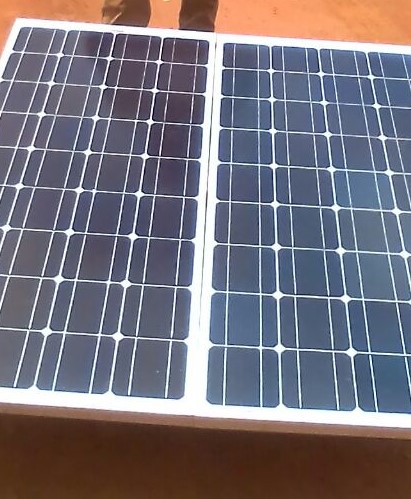
Malawi is facing challenges in sustainable energy provision and energy. Our main energy source is grid-electrification although just 10 percent of the population has access to it, with 2 percent in the rural areas. Increase in population, insufficient water levels for generation at the exiting power sites, and the high cost of extension of the centralized generation and grid distribution systems are just some factors that put pressure on the national grid system. And we cannot expect comprehensive solutions for the majority of the people anytime soon.
So, why don’t we just “go solar”? Below are eleven reasons why photovoltaic (=transforming sunlight to electricity) may be a good idea to cover our power needs..
First of all, it is a green source of energy. This means that it is friendly to our environment. In the 21st century, green is a color that is symbolizing progress in the energy debate. Most countries and communities who are conscious of the environment are going solar. While others are busy closing down their coal-power and nuclear plants and are replacing them with renewable energy options to reduce the tremendous risks that the older technologies brought forth, developing countries like Malawi with their abundant solar resources could even become world examples in this green technology movement – as we have the opportunity to learn from mistakes made by more industrialized nations over the past decades and avoiding the high costs and human risks of trial and error from the beginning. So far, 98% of Malawi’s grid energy is renewable (hydro-power), with substantial added renewable off-grid resources we could become one of a kind. .
Secondly, solar photovoltaic is a renewable source of energy. Since it is derived from sunlight, we are assured of this source to be always be there, and that is even on cloudy days. No matter how much we use it, the sun will never be depleted and that assures us of constant energy supply.
Thirdly, solar energy is available everywhere in the world – it is universal. All that is needed is a sunny spot, though it can also be powered in occasional shade e.g. in the rainy season, though obviously with lower production efficiency which should be planned in when designing the right system for the purpose. To make it more convenient everywhere, there is now technology that turns roofing, windows or even car surfaces into photovoltaic sources.
Fourth, the technology itself is durable. Good quality PV panels are designed for outdoor use and in a way that the glass can withstand pressure from various elements and have warrantied life spans of at least 10-25 years. (But that does not mean that we should put things on top of it trusting in its durability, as that could lead to scratches and cracks which would create inefficiencies and health hazards). Of course in most cases the panels are not used alone – depending on the use there may be need to add inverter, charge controller and potentially batteries for storage for use in the dark or on less sunny days – so the durability of the whole system will be determined largely by the quality of the individual components as well as proper installation, incl. an earthing wire against blizzards etc.
Sixth, talk of affordability, solar energy is a little bit high but with a lots of benefits. Paying for energy is one of the major expenditures in most Malawi households. The costs continue to rise to those on grid compared to those who are off-grid. Those using batteries/torches, candles, paraffin spend a lot of money on daily basis. But once solar system has been installed energy bills, daily expenditure on candles, battery torches are saved. Periodic maintenance of the system will only be expenditure on energy after some years.
Seventh, solar is easy to install with a few bolts to hold and secure them together with a simple writing. However, there is still need for a technician to verify the capacity of the system and the devices you can to be using.
Eighth, solar uses low voltage. Typically, 12 or 24 Volts DC which means it is safe to install and use. This is unlike Alternating Current (A/C) which generates a lot of Volts resulting in fatal shocks and even death.
Ninth, battery backup is a major advantage of the solar system. The battery stores power for up to three days enabling the system to keep running even when the Sun goes out. But as already said in No. 2, the Sun is always available. By the time the system uses up the stored power it will have already added more power again.
Last, renewable energy is taking center stage in government policies as well. It is being looked upon as the source of energy for the future. The political will Malawi government has shown by, among others, scrapping of tax and duty on all renewable energy items, means that its affordability and accessibility is long time.
Enough reasons for you and me to go solar! Go Green Before Green Goes!
